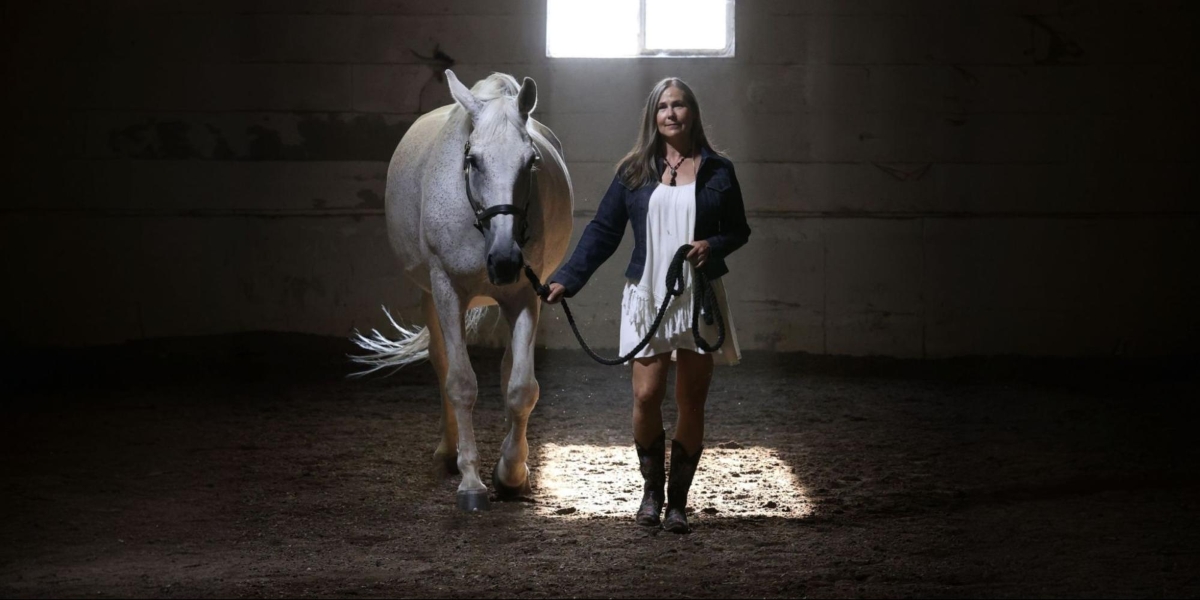By: Sarah Summer
When media outlets seek a grounded, articulate voice on burnout, resilience, and women’s leadership, they often turn to Melanie Rhora. The Canadian author and business strategist has experienced the collapse that many high achievers fear, and she has focused her work on helping others rebuild. Her book, The Phoenix Path: A Woman’s Guide to Healing, Rebuilding, and Rising Stronger, is both a memoir and a guide. It offers a step-by-step program drawn from her own lived experience of burnout, loss, and recovery.
“I learned how to rise again and again after life presented its challenges,” she reflects. That pattern of survival started early. Raised in Hamilton, Ontario, she grew up in a family that faced repeated upheavals. “Looking back now, I can see how the challenges I faced as a child helped me develop the ability to survive and rebuild from nothing, something we did more than once when I was young. I think that’s where I found my ‘phoenix energy.’”

From Paralegal to Business Strategist
Rhora’s professional path wasn’t conventional. “If you graphed it, my career would look like a plate of spaghetti,” she laughs. She worked as a paralegal, managed an international concrete firm, owned a flight school, and helped a university build online courses. Eventually, she spent over 15 years as a sought-after business strategist, guiding clients to over 100 million dollars in revenue.
By traditional measures, she was successful. But inside, she was struggling. “I silenced my own needs in the name of success and wondered why, despite all I had built, I never felt truly fulfilled.” The breaking point came with a devastating house fire. “That fire was a pivotal moment for me. It shattered the illusion of control I had in my life. It affected my marriage, my family relationships, and my health. In the midst of it all, I also lost my business.”
That moment led to a difficult decision. She would not rebuild the same life. Instead, she turned to something entirely new, training as a trauma-informed master facilitator, creating women’s circles, and eventually designing The Phoenix Path program and book.
Lessons From Collapse
Much of Rhora’s work today centers on reframing the concepts of discipline and resilience. Too often, she says, women are praised for pushing through exhaustion as if endurance is the same thing as strength. “Without boundaries, discipline and resilience can sometimes look like pushing through at your own expense—something I was very familiar with, like many businesswomen. When you balance these qualities, you can start to see positive changes in your life.”
She is open about the missteps that almost cost her health. Running her digital marketing agency, she accepted clients who weren’t aligned with her values because she was afraid to say no. “In fact, I had so many of these ‘Heck-No Clients’ that in 2015, I experienced adrenal fatigue from the stress of working with people I didn’t truly want to work with. The phone would ring, I’d check the caller ID, see the name of a heck-no client, and BAM! I’d feel completely overwhelmed.”
The turning point came when she wrote her first “Heck No List,” a boundary document that defined behaviors she would no longer tolerate, regardless of the fee. “It changed everything. It didn’t just protect my peace. It brought in clients who were better aligned with my values and helped me develop a deeper sense of self-trust than I ever imagined possible.”
Resilience Redefined
For Rhora, resilience isn’t about being unshakable. It’s about learning to bend without breaking. She recalls her pregnancy after seven miscarriages, a time filled with fear and uncertainty. At ten weeks, she was told to prepare for the worst, only to discover at a follow-up ultrasound that the baby was still holding on. “Against every odd, every experience I had lived through before, my baby was still holding on. In that moment, I made a promise: I would do everything in my power to protect this life.”
Placed on bed rest, she reinvented herself once more, resigning from her job and launching a consulting business. “What began as a moment of feeling completely out of control became the moment I decided to take my power back. That ordeal helped me realize that even in uncertainty, I could trust myself to figure things out.”
Her definition of resilience is clear. “It’s not the unshakable, unbreakable kind we often imagine, but the kind that allows us to bend without snapping. Resilience means rising not because we never fall, but because we choose to get back up.”
The Phoenix Path Framework
The Phoenix Path program and book distill these lessons into four phases: Recognize, Release, Reclaim, and Rise. Along the way, Rhora offers practical tools such as journaling, embodiment practices, tailored affirmations, and reflection questions to help women move from collapse to rebuilding.
She also teaches what she calls the “Five Things You Need to Know to Develop Discipline and Mental Resilience”:
- Breathe Before Reacting. A pause can interrupt nervous system overload before chaos takes over.
- Notice the Push Pattern. Productivity as a coping mechanism can be rewarded but also become destructive. Alignment, not fear, should drive effort.
- Relax Without Regret. Rest and play fuel creativity and sustainability. “Some of my best ideas come in the shower,” she notes.
- Set Small Non-Negotiable Boundaries. Predictable commitments create stability in both business and life.
- Trust Yourself. Self-trust is foundational. “You’ve already faced storms and survived. If you believe in your ability to rise every time you fall, you build resilience.”
These are not just abstract theories but practices she has lived, tested, and continues to teach.

Looking Ahead
Asked what movement she would like to inspire, Rhora doesn’t hesitate. “Imagine if every woman trusted her own inner wisdom. She could bounce back from challenges with less heartache and resentment. It could be life-changing, not only for her but for everyone she comes in contact with. We could bring about a world of more divine feminine leadership.”
She dreams of conversations with leaders who share that vision. Mel Robbins tops the list. “‘Let Them Theory’ was the first personal empowerment book I read with my teenage son. I think we’d have an amazing conversation about resilience, boundaries, and what it truly takes to rise stronger.”
For now, Rhora’s focus remains on guiding women through the ashes of burnout and back to themselves. She knows firsthand how disorienting it can feel. She also understands the power of choosing a different path. “Instead of letting fear dictate my path, I reclaimed my power in a new way.”









